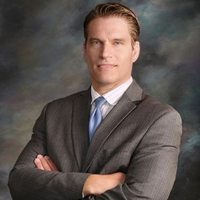Sunfield Felony Lawyer, Michigan
Sponsored Law Firm
-
 x
x

Click For More Info:
-
The Williams Law Firm
411 W Lake Lansing Rd Ste C-110 East Lansing, MI 48823» view mapCriminal Defense Law A Defense Lawyer With Proven Results
Knowing the law certainly is a necessary prerequisite but an attorney’s ability to effectively communicate is perhaps his or her paramount importance.
800-945-0701
Donald H. Smith
✓ VERIFIEDCriminal, Misdemeanor, Felony, Child Custody, Adoption
Dedicated to Excellence in Client Service
Don was born and raised in Kalamazoo, Michigan and graduated from Kalamazoo Christian High School in 1989. He attended Hope College in Holland, Michig... (more)
Matthew Xavier Hauser
✓ VERIFIEDCriminal, Felony, Landlord-Tenant, Child Custody
Ready to work with you to resolve your legal needs. Vandervoort, Christ & Fisher, P.C., is a general practice law firm that is dedicated to servin... (more)
Edward W. Jackson
Dispute Resolution, Estate Planning, Child Custody, Felony
Status: In Good Standing Licensed: 27 Years
FREE CONSULTATION
CONTACTFREE CONSULTATION
CONTACTJennifer M. Kelly
Estate Planning, Estate, Divorce, Felony
Status: In Good Standing Licensed: 32 Years
John P. Nicolucci
Divorce & Family Law, Felony, Business, Medical Malpractice
Status: In Good Standing
FREE CONSULTATION
CONTACTJoshua Adam Blanchard
Felony, DUI-DWI, Criminal, Personal Injury, Accident & Injury
Status: In Good Standing Licensed: 15 Years
 Richard L. Williams East Lansing, MI
Richard L. Williams East Lansing, MI Practice AreasExpertise
Practice AreasExpertise


